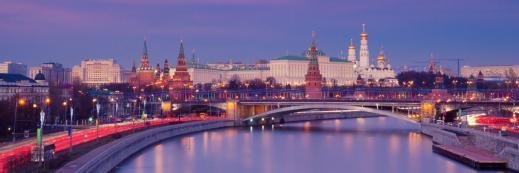
elvis_dead - Fotolia
Sberbank partners US accelerator for startup programme
Russian state-run bank links up with San Francisco-based accelerator 500 Startups to provide expert advice to startups in a variety of tech fields
Russian state-run bank Sberbank and San Francisco-based accelerator 500 Startups have launched a programme aimed at uncovering IT startups.
The accelerator programme, a first for Russia, was announced in early September. It is inviting applications from startups in a range of fields, including e-commerce, advertising technology, educational technology, the internet of things (IoT), big data, machine learning, artificial intelligence (AI), robotics and cyber security.
Sberbank holds almost one-third of Russia’s aggregate assets in the industry and boasts more than 145 million customers in 20 countries. In recent years, the bank has increased its activity around tech innovation and is one of the largest investors in Russian tech startups, also investing in tech companies across the globe.
In September 2018, Sberbank signed an investment deal with Israeli company ThetaRay, focused on cyber security. The bank also pumped cash into local company VisionsLab, which provides face-recognition technology.
“We are glad to cooperate with 500 Startups, which entrepreneurs all over the world dream about being invited to,” said Lev Khasis, Sberbank’s first deputy chairman of the executive board. “It is important that our joint project is focused on selecting Russian startups and allows American companies to take part in the selection.
“There has been nothing like this in Russia before. During the acceleration programme, large Russian companies and Sberbank will become customers of the startups. So, taking part in our programme will enable them to test their products in real conditions and find future clients.”
More than 840 startups applied to the programme; 56% of them already had a minimum viable product and 15% had a product in open beta testing.
“The selection process was tough as we received applications from top teams from all over Russia,” said Khasis. “When making selections, we primarily looked at startups that could not only become an integral part of Sberbank’s ecosystem, but could also have good prospects in the global market.
“I hope that during the acceleration, 500 Startups and the competences of the accelerator’s Russian partners will help the teams to graduate to a new level of development.”
Read more about startups in Russia
- Annual IT event Startup Village in Russia saw blockchain take centre stage and support from the country’s government.
- The annual Startup Village event near Moscow to showcase Russian innovators was the biggest yet.
E-commerce was the most popular area for startups applying to the programme, accounting for 15% of all applications, followed by cloud services and lifestyle services with 9% each.
AI and big data were also popular areas of activity, while other startups work in financial technologies, blockchain, digital healthcare and educational technologies.
In late November, Sberbank announced a list of 30 startups selected for the programme. Each project will receive seed investment of up to 10 million roubles (US$150,000) and the possibility to promote their product in Sberbank’s ecosystems and corporations, which are partners of the accelerator.
According to Sberbank, all the selected startups already have working products and paying customers.
One of them, Data Screen, develops technology for analysing and managing digital content distribution through the entire supply chain.
Michael Ilyichev, partner at Data Screen, told Computer Weekly: “Our project is at a stage when the solution is ready and needs to be scaled beyond Russia. We think that attention from 500 Startups and their community can help us with that.”
Find new customers
Ilyichev said Data Screen expects participation in the programme to help to find new customers for the company’s products outside Russia and attract international venture capital to the next funding round.
Another startup, ArtLogics, has developed pooling.me, an online platform for cargo deliveries to retail chains. It ran a pilot project with major Russian food retailer Magnit and four of its suppliers this summer.
“We believe our project could potentially have a very big impact on Russia’s logistics industry," said Pavel Vasilyev, managing director at ArtLogics. “So when we heard about the accelerator of Sberbank and 500 Startups, we immediately realised that it would be exactly the kind of support that we need at this point, as both companies have enormous expertise and a network of contacts and could help us to develop this project in the right way.”
ArtLogics expects its participation in the programme to help it devise a growth strategy and make contact with retail and logistics operators in other markets to see if its technology is applicable outside Russia, said Vasilyev.
Improving skills
Meanwhile, Doczilla, a digital document creation service, expects taking part in the accelerator to improve its skills for product development and promotion, and to learn from 500 Startups' mentors about business scaling in Europe, the US and other countries, according to Kirill Buryakov, the company's CEO.
“We also hope to show Sberbank and its partner the possibilities of our platform and to launch pilot projects,” he added.
Alexander Fokin, general director of Calcul.ru, a service for calculating insurance payments that is also taking part in the programme, said: “We would be certainly like to test ourselves in working with foreign customers.”
During the accelerator’s first stage, the teams will work with startups in Moscow for nine weeks. The mentors of the teams will be specialists from 500 Startups, who will give lectures and seminars and provide one-to-one consultations.
The final stage of the accelerator will be a demo day, where top managers from Sberbank, private venture investors and representatives of funds will choose the seven best startups.
The winners will be sent to the US to take part in the Silicon Valley Exchange Programme. There, they will learn about international business practices and develop their products, before presenting their projects to Russian and foreign investors and large companies on a demo day in San Francisco.








